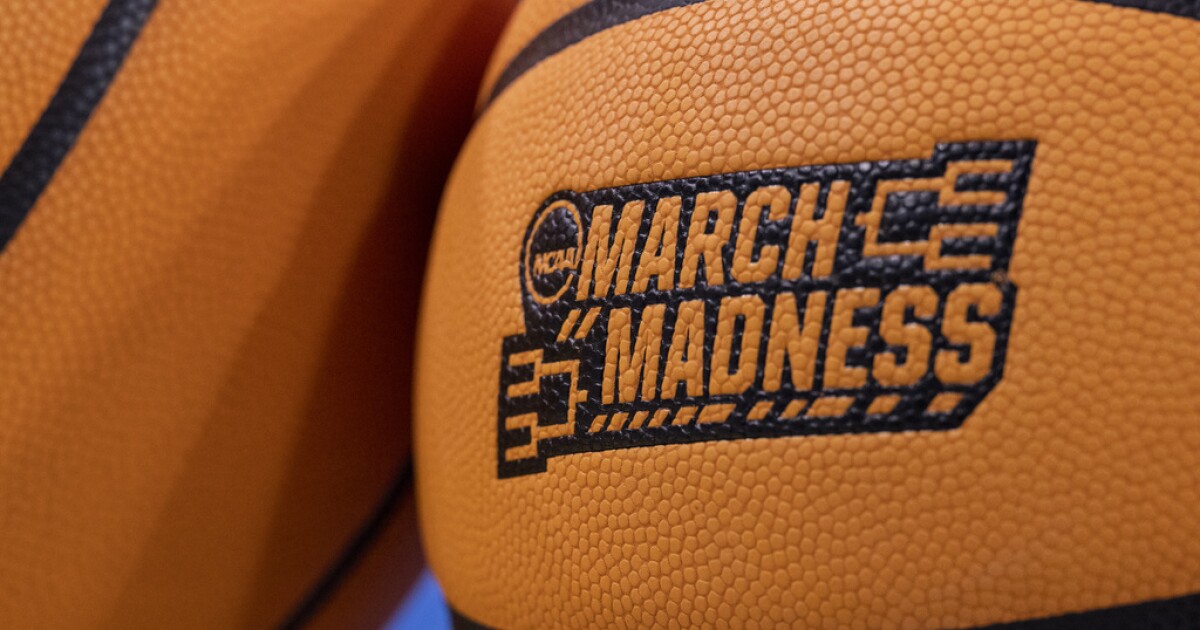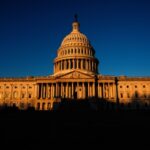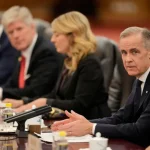

A panel of collegiate athletics stakeholders and experts testified before a House subcommittee Wednesday, with the majority urging Congress to enact a national standard for name, image, likeness deals for college athletes.
The Wednesday House Energy and Commerce Committee’s subcommittee on Innovation, Data, and Commerce featured testimony from Patriot League commissioner Jennifer Heppel, Virginia State University president Makola Abdullah, former NFL player Trey Burton, Florida State University softball player Kaley Mudge, Washington State University athletics director Pat Chun, and College Football Players Association executive director Jason Stahl.
CHARLES BARKLEY DUNKS ON ‘DISGRACE’ OF COLLEGE SPORTS AND POLITICIANS GETTING INVOLVED
The hearing came days before the conclusion of the NCAA men’s basketball tournament and comes amid an emerging bipartisan consensus in Congress about the need to pass legislation governing NIL deals for student-athletes.
Heppel, Abdullah, Mudge, and Chun repeatedly urged Congress to enact legislation requiring student-athletes to disclose their name, image, and likeness (NIL) deals to ensure that collegiate athletes could be fairly compensated for their individual market value. The theme of transparency was present from the opening statements of each witness and continued throughout the hearing they urged Congress to enact a national standard for NIL deals that would supersede a landscape of diverse regulations and laws that varies widely by state.
The support for transparency echoed recent comments from NCAA president and former Massachusetts Gov. Charlie Baker, who did not testify Wednesday, but has said transparency in NIL contracts is his top priority for a federal statute governing NIL deals.
“There’s no sort of basic market mechanisms in place you would normally see in a market like this,” Baker said, according to Punchbowl News. “One [athletic director] said to me, ‘Everybody lies.’ And that’s a problem for kids and families and everybody else.”
Kaley Mudge, a softball player for Florida State University, told the committee that the lack of transparency in contract deals hurts the ability of student-athletes to determine their “true market value” when negotiating NIL deals because there is little in the way of comparison.
“Given that we compete for national championships, it is imperative that we have uniform guidelines and expectations relative to NIL as opposed to the current framework of disparate or non-existent state laws and regulations,” Mudge told the committee. “These national standards should guarantee student-athletes the ability to pursue NIL opportunities, including international students-athletes, while also ensuring a healthy recruiting environment to promote fairness and equity, along with some measure of transparency to support the long-term sustainability of the NIL marketplace and help student-athletes understand their true market value.”
A major element in the debate over the regulation of NIL deals during the hearing centered on whether the NCAA and universities should be able to enter into revenue-sharing agreements with the athletes who generate revenue for the school, primarily from football and men’s basketball programs, who would have to unionize in order to negotiate such deals. The issue touched off a debate over whether student-athletes should be considered employees.
Stahl firmly advocated the unionization of college football players, which he said would empower athletes to negotiate with the NCAA, athletics conferences, and individual schools in regard to NIL deal regulations, competition standards and regulations, athlete safety, and other areas. He also said Congress should eschew federal interference in the NIL marketplace.
“Whether it is changes to NIL guidelines and their enforcement; transfer portal changes; college football playoff expansion; or any other changes to college football, the NCAA, conferences, and College Football Playoff administrators need to end the paternalism of the past,” Stahl told the committee. “They should come to the table and bargain with the players as equals regarding the conditions of their workplace.”
But other witnesses expressed concern that collective bargaining and a revenue sharing agreement would harm smaller athletics programs that do not generate immense amounts of revenue, such as softball, swimming, track and field, and soccer, as the revenue generated by football and basketball programs helps fund other sports programs.
CLICK HERE TO READ MORE FROM THE WASHINGTON EXAMINER
Concerns were also raised at the prospect of making student athletes employees of a college, which Washington State athletic director Pat Chun said would “cause irreparable damage to the student-athlete experience.”
“Certain aspects of a potential employer-employee relationship should be considered with caution. The notion that a student-athlete could be fired for underperformance undermines the very core of the educational mission,” Chun told the committee. “[I]f one group of student-athletes becomes employees, such as those in high revenue-producing sports, demands and legal claims could be made that all student-athletes should become employees. The financial impact could lead to the reduction of opportunities for broad-based participation on campuses around the country, resulting in significant Title IX implications threatening generations of hard-fought progress in women’s sports.”






